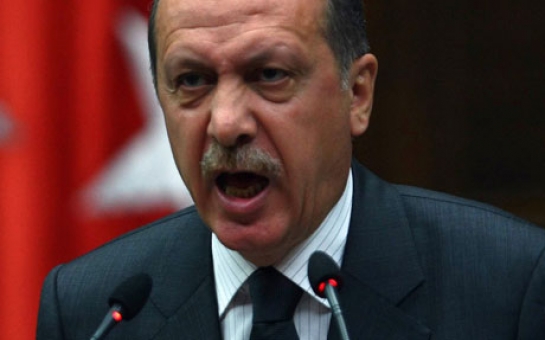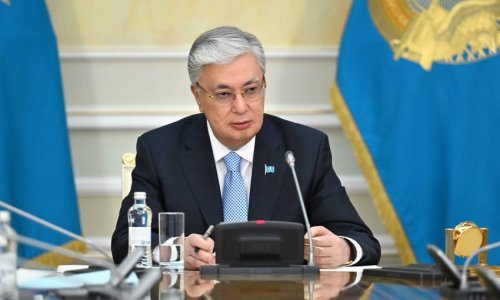Erdogan's win does signal something new, and that is another chapter in what by now is the long-running story of the mercurial leader's very public quest for increased power. With his ascendancy to the president's office assured, Erdogan is now faced with some new challenges: namely, how to enhance his powers despite the constraints placed on the president by the constitution and Turkey's existing parliamentary system, and how to restructure the government so that this goal is best served and the AKP stays in power past the next parliamentary elections.In a new briefing, the Washington Institute for Near East Policy's Turkey expert, Soner Cagaptay, lists the current powers available to the Turkish president -- from chairing cabinet meetings to vetoing bills -- and suggests Erdogan will push those to the limit (if not beyond) to maintain his dominance:It is all but certain that Erdogan will use his strong personality and constitutional powers to continue running the government as president. He has already pointed to heavy executive involvement, stating on August 4 that it "may not be enough" for him "to meet the prime minister once a week" as previous presidents have done, suggesting more frequent contacts. His remarks about the constitution also implied that he will seek a paramount role: "Article 104 of the constitution says that the president is the head of state, and that is it." Finally, he will no doubt seek additional legitimacy in the fact that he has been elected to the presidency by popular vote, a first in Turkey's history.What may prove to be a bigger challenge for Erdogan is how to manage the evolution of the AKP without the party splitting into rival factions. Writes the Wall Street Journal's Emre Peker:To succeed, President-elect Erdogan needs to appoint a loyal prime minister to lead a government that will push his legislative agenda. He must also help safeguard the AKP's broad support to secure a fourth consecutive parliamentary majority in June elections."Erdogan will do whatever he can to consolidate powers starting today—in his forceful style," said Marc Pierini, a former European Union ambassador to Turkey who is now with the Carnegie Endowment for International Peace in Brussels. "I don't see any reasons why he would leave any place to anybody else—like [current President and AKP founding member Abdullah] Gul."The speculation in Turkey is that Erdogan will work to have the current foreign minister, Ahmet Davutoglu, appointed as his replacement. Most likely in an effort to forestall any effort by Gul to become PM, the AKP today announced that it would hold an extraordinary convention on Aug. 27 to choose its next leader (who would also be PM), holding the meeting a day before the current president leaves office. If he wants to become the AKP's new leader, Gul -- who, to further complicate things, today said he plans to "return" to the party -- would have to resign before his term is up.An even more interesting question facing Turkey is, in the reshaping of the AKP, what will Erdogan do regarding the fate of Ali Babacan, a deputy prime minister responsible for economic matters, who cannot run for a seat in parliament again because of the party's term limit regulations. Babacan is widely considered to be the main steady hand guiding Turkey's economy, but there have been recent indications that he is getting pushed aside in favor of others. Last week, for example, remarks Babacan made about the possible purchase by a state-owned bank of another bank were publicy contradicted by Yigit Bulut, a controversial advisor to Erdogan. A newspaper columnist who writes about economics, Bulut is perhaps best known for suggesting during last year's Gezi protests that foreign and domestic powers were using telekinesis to target the Turkish PM. A Turkey where someone such as Bulut holds more sway Babacan? Now that, unfortunately, would be something worth calling "New Turkey." (eurasianet.org)Bakudaily.Az
After Presidential Win, How Will Erdogan Reshape the Political Order? - OPINION
World
12:00 | 12.08.2014

After Presidential Win, How Will Erdogan Reshape the Political Order? - OPINION
It says something about Recep Tayyip Erdogan's political audacity and his Justice and Development Party's (AKP) marketing chutzpah that despite the Turkish leader having served as prime minister for some twelve years they were still able to sell his victory in yesterday's presidential election as the starting point for a "New Turkey." After over a decade of thoroughly dominating Turkey's political scene, there is certainly very little that is new about Erdogan.
Follow us !










